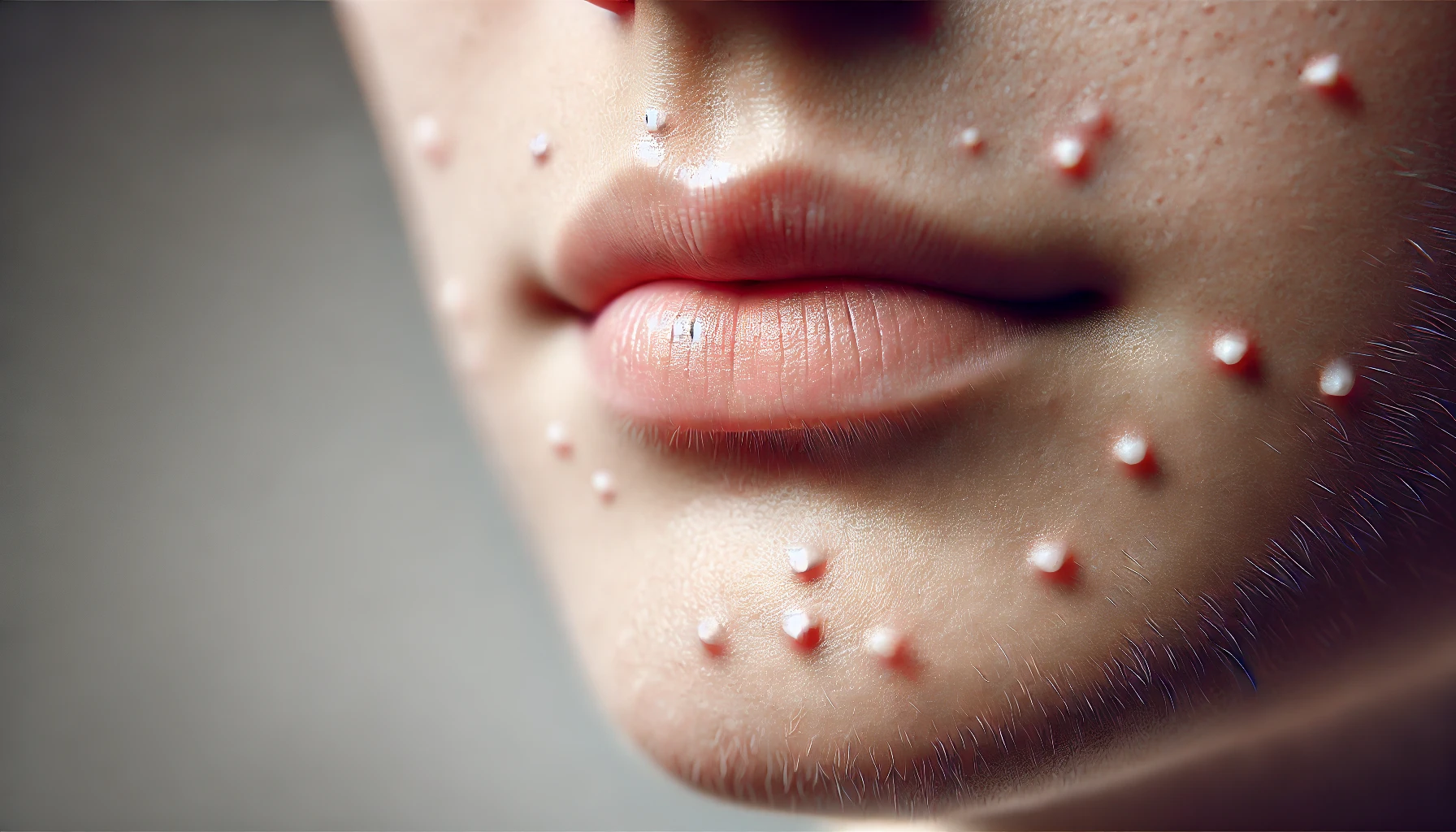Health Notice: This article was written using the Consensus AI Academic Search Engine. It is intended solely for informational purposes and should not be considered medical advice. Always consult a licensed healthcare provider for diagnosis, treatment, or medical guidance. Please refer to the full Disclaimer at the end of this article.
Fordyce spots, also known as Fordyce granules, are small, raised, pale or white spots or bumps that can appear on the shaft of the penis, scrotum, labia, or the vermilion border of the lips. These spots are ectopic sebaceous glands, meaning they are sebaceous glands located in an unusual place. They are a common dermatological condition and are typically asymptomatic and benign.
Characteristics of Fordyce Spots
Fordyce spots are usually 1 to 3 mm in diameter and can appear in clusters or as single spots. They are more noticeable when the skin is stretched. These spots are not associated with any disease or illness and are considered a normal anatomical variant. They are not infectious and cannot be transmitted through sexual contact.
Prevalence and Demographics
Fordyce spots are quite common and can be found in a significant portion of the population. They are present in both males and females, although they are more frequently observed in males. The exact cause of Fordyce spots is not well understood, but they are believed to be a natural occurrence related to the development of sebaceous glands.
Clinical Presentation
In males, Fordyce spots are often found on the foreskin, shaft of the penis, and scrotum. They appear as small, pale, or white bumps that are typically asymptomatic. In some cases, individuals may notice these spots during puberty when sebaceous glands become more active. The spots do not cause pain or discomfort, although their appearance can sometimes cause concern or embarrassment.
Diagnosis
The diagnosis of Fordyce spots is usually made based on their characteristic appearance and location. Dermatologists can typically identify these spots through a visual examination. In rare cases, a biopsy may be performed to confirm the diagnosis and rule out other conditions.
Conclusion
Fordyce spots on the foreskin are a common and benign dermatological condition. They are small, raised, pale or white spots that are ectopic sebaceous glands. These spots are not associated with any disease and are considered a normal anatomical variant. While they may cause cosmetic concern for some individuals, they are typically asymptomatic and do not require treatment. Understanding the nature of Fordyce spots can help alleviate any unnecessary worry and promote acceptance of this common condition.
Disclaimer
The content in this blog post was generated using Consensus, an AI-powered academic search engine, and is based on publicly available scientific literature. While we strive to provide accurate, up-to-date, and well-researched information, this content is intended for informational and educational purposes only.
It does not constitute medical advice, diagnosis, or treatment. Always consult a qualified healthcare professional before making decisions related to any medical condition, treatment, or medication.
The AI system’s analysis may not account for all perspectives, ongoing research, or individual circumstances, and should not replace professional expertise. Neither the blog publisher nor the developers of the Consensus AI tool are liable for any decisions or actions taken based on this content.
Use of this information is at your own risk. Where provided, citations link to original scientific studies for reference only—these should be reviewed independently and interpreted with the support of a qualified medical or research professional.
If you are experiencing a medical emergency, please seek immediate care from a healthcare provider or call emergency services.
